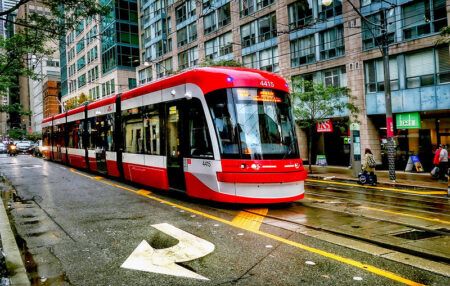As an increasing number of cities worldwide are turning to the electrification of their public transport networks in order to reduce vehicle emissions and noise, Volvo Buses has secured its largest ever order for complete electric bus systems.
The Belgian cities of Charleroi and Namur have together ordered 90 Volvo 7900 Electric Hybrid buses, as well as 12 charging stations, which will be delivered by ABB. The order from the TEC Group public transport company covers 55 buses for Charleroi, and another 35 buses for Namur. ABB will supply four charging stations to Charleroi and eight charging stations for Namur, with delivery and installation due to get under way this autumn. After the delivery, the TEC Group will have ordered in total 101 Volvo electric hybrids and 15 ABB charging stations. The customer and operator, TEC Group, previously ordered 11 Volvo 7900 Electric Hybrids along with charging stations for Namur, a system that became operational in January this year. Once the 35 new buses take to the roads, 90% of Namur’s public transport will be electrified.
Volvo’s electric hybrids and ABB’s fast-charging systems are based on a common interface known as OppCharge, whereby the charging stations can also be used by electrified buses from other vehicle manufacturers. OppCharge is now being implemented as a common interface in more than 12 countries. Equipped with an electric motor, batteries and a small diesel engine, the Volvo 7900 Electric Hybrid operates quietly and exhaust emission-free on electricity for about 70% of its route. Battery recharging takes three to four minutes with ‘opportunity charging’, using a pantograph attached to a roadside pylon for conductive charging using current collectors, with communication between the bus and charging station via wi-fi. Energy consumption is about 60% lower than for a corresponding diesel bus, with 75-90% lower carbon dioxide emissions, depending on choice of fuel. Volvo’s electric hybrids have already entered service in cities such as Gothenburg, Stockholm (Sweden); Hamburg (Germany); Luxemburg; Namur (Belgium); and Curitiba (Brazil).
“We can see that more and more of the world’s cities are choosing electrified city bus traffic in order to deal with poor air quality and noise,” noted Volvo Buses’ president, Håkan Agnevall. “The common interface for fast charging of buses and trucks, OppCharge, is gaining ground. The use by many suppliers of a common interface will facilitate the transition to electromobility in the world’s cities.”
The largest single market for Volvo’s hybrid buses thus far is the UK, which accounts for almost half (1,425) of the vehicles in operation. In a project that has been partly funded by the UK government’s Low Emission Bus Scheme, the Harrogate Bus Company, owned by Transdev Blazefield, has just bought eight all-electric buses from Volvo. When the vehicles enter service in 2018, the project will be the first of its kind in the UK introducing full electric vehicles using ‘opportunity charging’ via the OppCharge common interface.
“It is extremely gratifying that Volvo’s first full-electric buses will enter into service in the UK next year,” said Agnevall.




